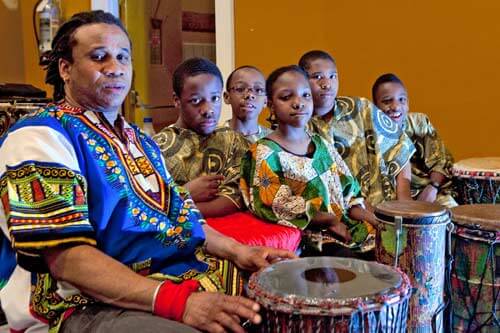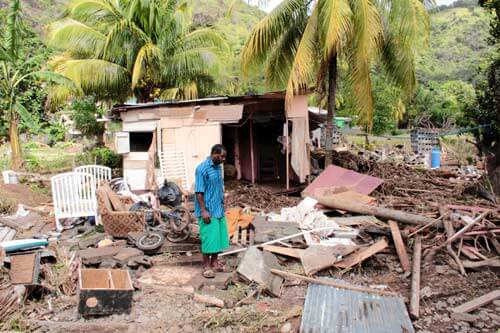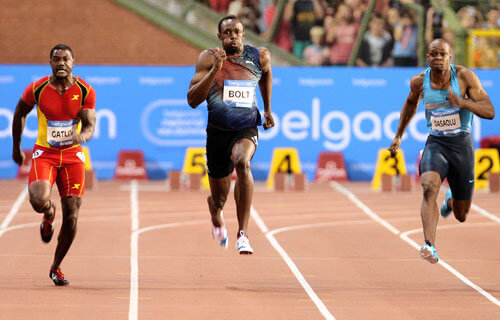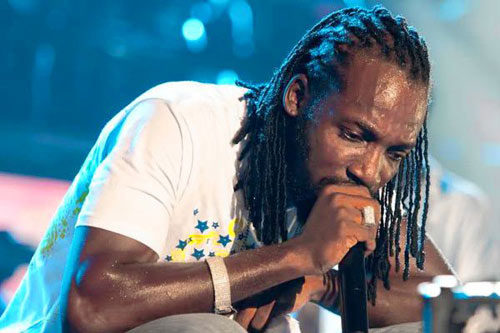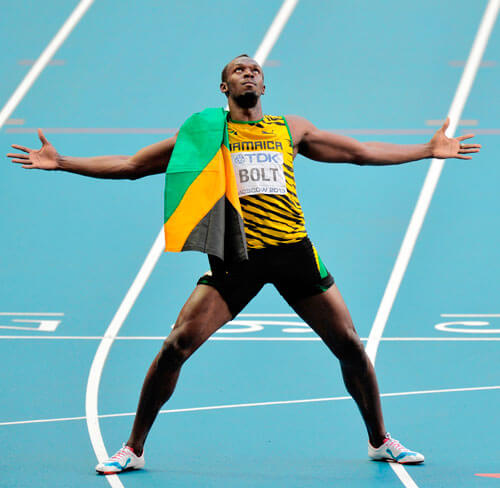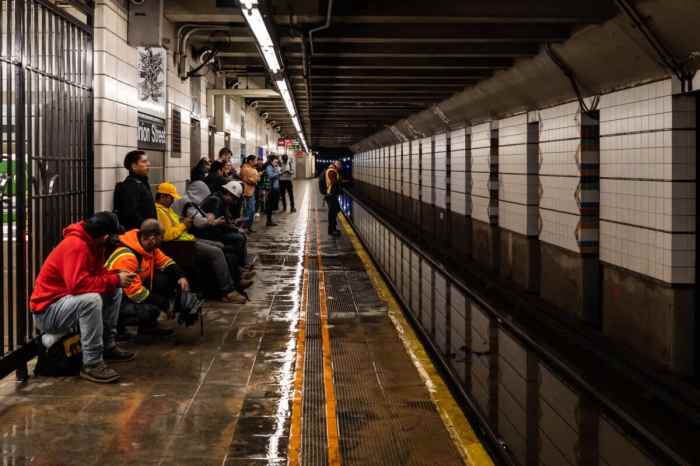A rare opportunity presents itself this week as Orisha drummers play Manhattan’s Elebash Hall. Outside of Trinidad, Orisha is generally experienced in late-night gatherings in Flatbush churches celebrating feasts, occasions which can last several nights. Earl Noel, a master of this sacred ceremonial tradition, will lead a trio of drummers and an ensemble of dancers in an Orisha religious service. Three drums, the Bo, Bembe, and Umele are at the center of the ceremony. The drummers call to each Deity in turn with a particular rhythm known by that Deity’s name.
In a sense, Earl says, it’s a conversation with that spirit or ancestor — the rhythms from the three drums calling the Yoruba deities; a tradition handed down orally from generation to generation that he continues as a drummer and teacher in Brooklyn.
A typical Orisha religious service includes Spiritual Baptist hymns, plaintive prayers, lively songs for all the spirits, and closes with a somber song of thanks. All of the songs are sung in Yoruba, except for the opening hymns sung in English, says producer Ryan Bazinet
A musician, Ryan fell in love with the fast-paced, energetic music, where everyone is singing and clapping. “It is the best feeling and musical experience i have ever had.” The Orisha religion shares roots, Yoruba lyrics and even identical songs with the Cuban music,” he says. “Many people who have heard of Santeria did not know Yoruba-derived music and religion exist in Trinidad. I am thrilled to be a part of sharing this with a wider audience.”
Earl plays a vital role in the Orisha social scene in Brooklyn, which is coming into season. As the weather gets warmer, feasts return, centered at Mt Moriah Baptist and other churches in Flatbush.
Earl began drumming at four years old in Belmont, Port of Spain. “A place called Gonzalez,” he says. The youngest of 13 children, he was born into Orisha music, first picked up drumming from his older siblings and from his neighbor, Mother Burness, the keeper of the Orisha feasts there. He now spends time teaching drumming — folkloric and Orisha, to youths here in Brooklyn. Natural Expressions, another group he is involved in performs during carnival season and includes drummers of all ages.
While Orisha music remains largely confined to tight-knit communities both here and in Trinidad, its influences can be heard in the popular music of David Rudder and in the spiritual folk music of songs like, “Bring Down the Power” by Ella Andall.
Historian and radio host Trevor Wilkins says “Shango (Orisha) played a serious role in Trinidad and Tobago music in the ‘30’s and ‘40’s, calypso grew out of shango and spiritual baptist music. The pracitice itself was banned under colonial rule, and as an underground practice only became legal with independence.” Chalkdust, Sparrow, Houdini and others made calypsos based on Shango.
The concert is Wednesday, April 24 at Elebash Hall, located at 365 5th Avenue, at 34th Street in Manhattan, at the City University Graduate Center. Tickets are $12; $10 for students and can be purchased online by visiting www.liveat365.org.
The Trevor Wilkins Show on Friday and Saturday evenings on WNYE (91.5 FM) will present a full evening of Spiritual Baptist music May 24th and a full evening of Orisha music on May 25th.

Photo by William Farrington
C


